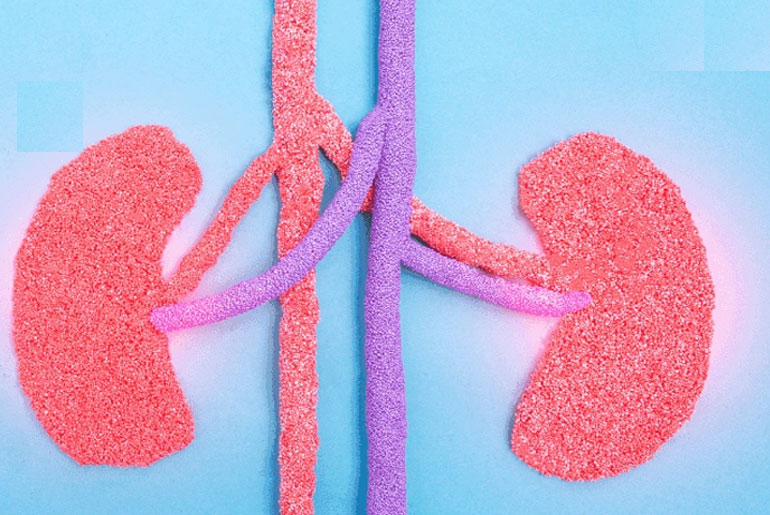Kidney cancer is a formidable health concern that can develop silently within the cells of this vital organ, often without presenting noticeable symptoms. The risk of kidney cancer tends to escalate with age, and lifestyle choices play a significant role in its development. In 2023 alone, nearly 4,600 individuals were diagnosed with kidney cancer, with the average age at diagnosis being 65 years old. Smoking emerges as a major risk factor, doubling the likelihood of developing kidney cancer compared to non-smokers. However, even those who abstain from smoking or excessive alcohol consumption may still face a substantial risk as they age, especially if they maintain problematic lifestyle habits such as unhealthy eating patterns and physical inactivity.
Renal cell carcinoma (RCC) stands as the most prevalent type of kidney cancer, constituting approximately 90% of all cases. The kidneys function as crucial filters, removing waste products and excess fluids from the blood while maintaining electrolyte balance and regulating blood pressure. Despite their vital role, kidney health can be compromised by various factors, including lifestyle choices and underlying medical conditions.
One of the significant challenges associated with kidney cancer is its propensity to progress rapidly in its early stages without exhibiting obvious symptoms, thereby posing serious health risks if left untreated. However, individuals can take proactive measures to promote kidney health and mitigate the risk of kidney cancer and related complications.
Kidney cancer is often correlated with factors such as smoking, obesity, and genetic predisposition. Recognizing potential symptoms such as blood in urine, back pain, weight loss, and fatigue is crucial for early detection. Diagnosis typically involves imaging tests to assess the extent of the cancerous growth.
Treatment options for kidney cancer encompass a range of approaches tailored to the cancer stage and the patient’s overall health. These may include surgical interventions, targeted therapy, immunotherapy, and participation in clinical trials aimed at advancing treatment efficacy and outcomes.
Not Keeping Blood Pressure in Check: High blood pressure can damage kidneys over time, increasing the risk of kidney disease and cancer. Monitor blood pressure regularly and take steps to keep it within a healthy range through lifestyle modifications such as diet, exercise, stress management, and medication.
High Blood Sugar Levels: Individuals with diabetes are at increased risk of kidney disease and cancer. Maintain tight control over blood sugar levels through diet, exercise, medication, and regular monitoring to minimize the risk of kidney complications.
Taking Too Many Pain Relievers: Certain over-the-counter pain relievers, when used excessively, can harm kidneys. Use nonsteroidal anti-inflammatory drugs (NSAIDs) sparingly and under medical guidance. Consider alternative pain management strategies and follow recommended dosage instructions.
Not Eating a Balanced Diet: Prioritize a diet rich in fruits, vegetables, and whole grains while limiting processed meats, sugary beverages, and unhealthy fats. These nutrient-dense foods provide essential vitamins, minerals, and antioxidants that support optimal kidney function and reduce the risk of kidney cancer.
Excess Weight: Aim to maintain a healthy body weight through regular exercise and mindful eating habits. Excess weight can strain the kidneys and increase the risk of kidney disease and cancer. Focus on consuming a variety of nutrient-rich foods in appropriate portions to support weight management and overall health.
Not Drinking Enough Water: Adequate hydration is essential for proper kidney function and the elimination of waste products and toxins from the body. Drink plenty of water throughout the day, aiming for at least 8 glasses or 2 litres, to support optimal kidney health. Monitor urine colour; pale yellow urine indicates adequate hydration.
Smoking and Alcohol: Smoking and excessive alcohol consumption are significant risk factors for kidney cancer. Quitting smoking and moderating alcohol intake can help protect kidneys and reduce the risk of cancer. Seek support from healthcare professionals or support groups if needed.
In summary, kidney cancer presents a multifaceted challenge with implications for both individual health and healthcare systems at large. By adopting a holistic approach that addresses lifestyle factors, promotes early detection, and utilizes cutting-edge treatment modalities, individuals can empower themselves in the fight against kidney cancer and strive towards optimal kidney health.
Disclaimer:
The information contained in this article is for educational and informational purposes only and is not intended as a health advice. We would ask you to consult a qualified professional or medical expert to gain additional knowledge before you choose to consume any product or perform any exercise.








